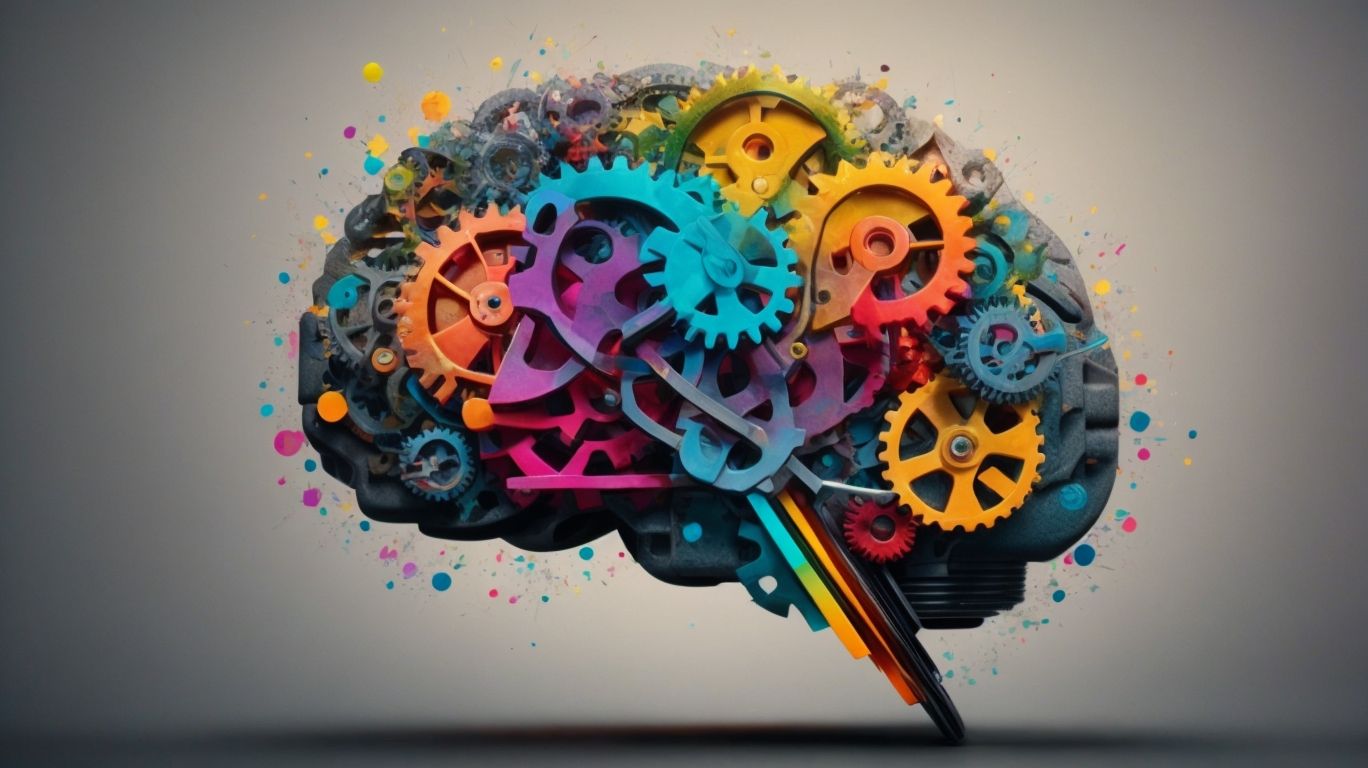Have you ever wondered what hypothetical thinking is and how it differs from critical thinking?
In this article, we will explore the concept of hypothetical thinking and its different types, such as deductive, inductive, and abductive reasoning. We will also discuss how hypothetical thinking relates to problem-solving and the benefits of developing these skills, including improved decision-making and enhanced creativity.
We will provide tips for improving your hypothetical thinking skills. So, let’s dive into the world of hypothetical thinking and its significance in psychology.
Contents
- 1 Key Takeaways:
- 2 What Is Hypothetical Thinking?
- 3 How Does Hypothetical Thinking Differ from Critical Thinking?
- 4 What Are the Different Types of Hypothetical Thinking?
- 5 How Does Hypothetical Thinking Relate to Problem-Solving?
- 6 What Are the Benefits of Developing Hypothetical Thinking Skills?
- 7 How Can One Improve Their Hypothetical Thinking Skills?
- 8 Frequently Asked Questions
- 8.1 What is hypothetical thinking in psychology?
- 8.2 How does hypothetical thinking relate to problem-solving?
- 8.3 Can anyone develop hypothetical thinking skills?
- 8.4 What are the benefits of having strong hypothetical thinking abilities?
- 8.5 How does hypothetical thinking differ from critical thinking?
- 8.6 Can hypothetical thinking be harmful?
Key Takeaways:
- Hypothetical thinking is the ability to imagine and explore potential scenarios and solutions.
- Unlike critical thinking, hypothetical thinking allows for exploration and creativity.
- Deductive, inductive, and abductive reasoning are three types of hypothetical thinking.
What Is Hypothetical Thinking?
Hypothetical thinking involves the exploration of potential scenarios and outcomes based on suppositional reasoning, often utilized to test beliefs and theories.
This form of thinking allows individuals to project themselves into different situations, assess the consequences of various decisions, and weigh multiple options before making a decision.
It plays a crucial role in reasoning by enabling individuals to consider alternative possibilities and anticipate potential challenges. It’s important to recognize that hypothetical thinking can also lead to cognitive biases, as individuals may overly rely on imagined scenarios and overlook real-world evidence.
Despite these potential pitfalls, fostering critical thinking and examining hypothetical scenarios can contribute to enhancing human rationality.
How Does Hypothetical Thinking Differ from Critical Thinking?
Hypothetical thinking and critical thinking differ in their approaches to reasoning and decision-making, with the former emphasizing hypothetical scenarios and the latter focusing on logical analysis and contradiction resolution.
Hypothetical thinking often involves creating and exploring possible scenarios without the need for concrete evidence-based support, whereas critical thinking leverages evidence and reasoning to evaluate and analyze information.
In hypothesis testing, hypothetical thinking tends to entertain multiple conjectures without rigorous validation, while critical thinking rigorously tests and validates hypotheses with empirical evidence and logical reasoning.
In terms of reasoning strategies, hypothetical thinking tends to lean towards intuitive leaps and imaginative exploration, while critical thinking employs systematic and analytical approaches to deconstruct and evaluate information.
Cognitive biases also play a role, with hypothetical thinking potentially succumbing to wishful thinking and confirmation bias, whereas critical thinking aims to mitigate biases through rigorous analysis and skepticism.
What Are the Different Types of Hypothetical Thinking?
Hypothetical thinking encompasses various types, including deductive reasoning, inductive reasoning, and abductive reasoning, each serving distinct purposes in cognitive exploration and decision-making.
Deductive reasoning involves reaching a specific conclusion from a general premise through logical steps. It is widely used in mathematics, philosophy, and law to draw conclusions and solve problems.
Inductive reasoning infers general principles from specific observations, commonly seen in scientific research and data analysis. Abductive reasoning seeks the best explanation for a set of observations, often utilized in clinical reasoning and hypothesis generation.
These types of hypothetical thinking are vital to understanding dual-process theories, providing insight into how humans process information and make decisions.
Deductive Reasoning
Deductive reasoning involves the application of logical rules and paradox resolution to derive specific conclusions from general principles or premises, shedding light on cognitive biases and belief contradiction.
This form of reasoning is based on the notion that if the premises are true, the conclusion must necessarily follow. It plays a fundamental role in the scientific method, allowing researchers to draw conclusions from hypotheses.
Logic is at the heart of deduction, guiding the process of moving from the general to the specific.
In resolving paradoxes, deductive reasoning seeks to eliminate contradictions among beliefs or statements. It requires meticulous examination and validation of each premise to reach a coherent, logical conclusion.
Deductive reasoning can help in unveiling and addressing cognitive biases, challenging assumptions, and fostering critical thinking. It enables individuals to navigate through complex information and make sound decisions based on valid arguments and evidence.
Inductive Reasoning
Inductive reasoning entails drawing general conclusions from specific observations or experiments, often utilized in psychology and probability assessments to infer broader trends and scenarios.
In experimental psychology, researchers employ inductive reasoning to analyze specific observations or data and then generalize findings to form theories or principles. By identifying patterns and regularities, psychologists use inductive reasoning to make educated predictions about human behavior and mental processes, contributing to the advancement of psychological knowledge.
In probability assessments, inductive reasoning aids in evaluating the likelihood of specific events occurring based on empirical evidence and observations, allowing for sound decision-making in uncertain conditions.
This type of reasoning also plays a crucial role in inferring potential scenarios and outcomes in various real-world situations, guiding individuals and organizations in making informed choices.
Abductive Reasoning
Abductive reasoning revolves around the generation of plausible scenarios and hypotheses based on incomplete information, often employing heuristics to derive likely explanations, as proposed by Jonathan St B Evans.
This form of reasoning focuses on constructing the most likely explanation from the information available, taking into consideration the context and previous experiences to form a coherent hypothesis.
Jonathan St B Evans has emphasized the role of heuristics in guiding this process, allowing individuals to sift through the multitude of potential explanations and arrive at a reasonable and probable conclusion.
How Does Hypothetical Thinking Relate to Problem-Solving?
Hypothetical thinking plays a crucial role in problem-solving by aiding in the identification of the problem, generation of hypotheses, and testing and refinement of potential solutions, as studied at the University of Saskatchewan.
This process involves a systematic approach where individuals examine various possible scenarios and their potential impacts on the issue at hand.
By engaging in hypothetical thinking, individuals can explore alternative perspectives and anticipate potential challenges or opportunities, which can lead to more effective problem-solving strategies.
Identifying the Problem
Identifying the problem involves recognizing contradictions, paradoxes, or logical inconsistencies, prompting the initiation of hypothetical thinking to explore potential resolutions and decisions.
Decision-making plays a crucial role in this process, as it involves evaluating various options and their potential implications. Belief contradiction recognition requires a deep introspection of one’s own assumptions and biases, which may be influencing the perception of the problem.
It entails acknowledging the presence of conflicting beliefs and understanding how they contribute to the complexity of the identified problem. Identifying the problem necessitates a thorough examination of the underlying causes and contributing factors.
This process often involves seeking perspectives from diverse sources to gain a comprehensive understanding of the issue at hand. Recognizing the interconnected nature of different variables and their impact on the problem is integral to formulating effective strategies for resolution.
Generating Hypotheses
Generating hypotheses entails leveraging dual-process theories and reasoning strategies to propose potential solutions and scenarios, fostering exploration and cognitive analysis.
When individuals engage in the process of generating hypotheses, they draw upon dual-process theories to blend intuitive and analytical thinking.
This integration of different cognitive approaches allows for a comprehensive exploration of potential explanations and predictions.
Reasoning strategies play a pivotal role in this process, as individuals critically evaluate existing evidence, recognize patterns, and identify causal relationships.
By incorporating both intuitive leaps and systematic analysis, the hypotheses constructed exhibit a rich complexity, reflecting the interconnectedness of cognitive processes.
Through this lens, the generation of hypotheses becomes a dynamic and iterative cognitive endeavor, rooted in the interactive application of dual-process theories and reasoning strategies.
Testing and Refining Hypotheses
Testing and refining hypotheses involves experimental assessments, logical analysis, and paradox resolution to evaluate the feasibility and effectiveness of proposed solutions derived from hypothetical thinking.
During the process of hypothesis testing, researchers aim to design controlled experiments that effectively isolate the variable being studied. This is crucial for obtaining reliable results. The scientific method serves as a blueprint, guiding the systematic experimentation and collection of empirical evidence.
The data collected is then carefully analyzed, drawing correlations and causations and identifying any discrepancies. By integrating this evidence with theoretical frameworks, researchers strive to refine and validate their hypotheses, ultimately contributing to the advancement of knowledge in their field.
What Are the Benefits of Developing Hypothetical Thinking Skills?
Developing hypothetical thinking skills yields numerous benefits, including improved decision-making, enhanced creativity, better problem-solving abilities, and increased understanding of complex concepts, as studied in the context of dual-process theories.
When individuals develop their capacity for hypothetical thinking, they become adept at considering multiple potential outcomes and scenarios. This allows them to make informed decisions based on speculation and foresight.
This skill also fuels creativity as it encourages individuals to envision alternative possibilities and think outside the box. This leads to the generation of innovative solutions and ideas.
Honing hypothetical thinking abilities equips individuals with the capability to dissect intricate problems, analyze various hypothetical outcomes, and select optimal solutions effectively. This ultimately bolsters their problem-solving skills.
The cognitive understanding is broadened as it strengthens the capacity to grasp abstract or abstract concepts through hypothetical exploration.
Improved Decision-Making
Enhanced hypothetical thinking contributes to improved decision-making by incorporating heuristics, probability assessments, and scenario evaluations to inform rational and effective choices.
When individuals engage in hypothetical thinking, they mentally simulate potential scenarios and their corresponding outcomes, allowing them to consider various possibilities and anticipate the consequences of different actions.
This process enables the application of heuristics, which are cognitive shortcuts used to simplify complex decision-making tasks. The integration of probability assessments assists in quantifying uncertainties, enhancing the ability to make more informed choices.
Ultimately, such cognitive mechanisms support the pursuit of rational choice by systematically evaluating alternatives and aligning decisions with desired outcomes.
Enhanced Creativity
Developing hypothetical thinking skills fosters enhanced creativity by encouraging divergent thinking, cognitive flexibility, and the exploration of unconventional solutions, as observed in studies at the University of Toronto.
Hypothetical thinking, which involves considering and exploring various possibilities and scenarios beyond the realm of current reality, has been linked to enhanced creativity.
It challenges individuals to break free from conventional thought patterns and engage in unconventional problem-solving approaches. This can lead to the generation of innovative and inventive ideas, vital for creative processes in artistic, scientific, and entrepreneurial endeavors.
Better Problem-Solving Abilities
Hypothetical thinking skills contribute to better problem-solving abilities by enabling comprehensive analysis, hypothesis generation, and effective resolution strategies, as evidenced in research at the University of Saskatchewan within the context of dual-process theories.
When individuals engage in hypothetical thinking, they are able to explore a wide range of possible scenarios and solutions. This process allows for the consideration of multiple perspectives and potential outcomes, leading to a more thorough examination of the problem at hand.
As a result, individuals can develop innovative problem-solving strategies that may not have been apparent through conventional modes of thinking. The integration of dual-process theories provides insight into how individuals can balance intuitive and analytical approaches during the problem-solving process, ultimately enhancing their ability to make well-informed decisions.
Increased Understanding of Complex Concepts
Developing hypothetical thinking skills leads to increased understanding of complex concepts by facilitating cognitive analysis, bias recognition, and the exploration of contradictory beliefs, as observed in the works of Keith E. Stanovich and Vittorio Girotto.
Enhancing hypothetical thinking involves the ability to create mental scenarios, considering various possibilities and potential outcomes. This enables individuals to analyze complex concepts from multiple perspectives, allowing for a deeper grasp of the underlying principles and interconnections.
Keith E. Stanovich, in his research on rational thinking and the psychology of reasoning, emphasizes the importance of controlling biases and recognizing cognitive illusions. This aligns with the significance of hypothetical thinking in pinpointing and addressing subjective influences when processing complex information.
Vittorio Girotto’s studies on belief contradiction shed light on the correlation between hypothetical thinking and understanding contradictory concepts, suggesting that individuals with proficient hypothetical thinking skills are more adept at reconciling conflicting viewpoints.
How Can One Improve Their Hypothetical Thinking Skills?
Improving hypothetical thinking skills involves practicing the generation and testing of hypotheses, engaging in critical thinking activities, and seeking out diverse perspectives to enhance cognitive flexibility and analytical capabilities, as studied at the University of Toronto.
One effective strategy for enhancing hypothetical thinking skills is to regularly engage in brainstorming sessions to generate and test various hypotheses. This can cultivate a habit of critically evaluating different ideas and their potential outcomes, thereby strengthening one’s analytical abilities.
Exposing oneself to a wide range of perspectives through reading, discussions, and learning from diverse sources plays a crucial role in broadening cognitive flexibility and fostering a deeper understanding of different viewpoints.
Practice Generating and Testing Hypotheses
Engaging in activities that involve the generation and testing of hypotheses, while leveraging dual-process theories and reasoning strategies, enhances the proficiency of hypothetical thinking skills, fostering cognitive flexibility and analytical depth.
Embracing the process of hypothesis formation and testing contributes to honing critical thinking capabilities. As individuals immerse themselves in this practice, they not only refine their cognitive abilities but also cultivate a deeper understanding of the underlying mechanisms at play.
Embracing dual-process theories and employing diverse reasoning strategies allows for a comprehensive exploration of potential outcomes. This strategic approach to hypothesis generation not only sharpens the mind but also enables individuals to develop the capacity to consider multiple perspectives and anticipate various scenarios.
The iterative nature of hypothesis testing facilitates an in-depth comprehension of the subject matter being explored, fostering a more nuanced and comprehensive understanding.
Engage in Critical Thinking Activities
Participating in critical thinking activities, as advocated by researchers such as Evans and documented in APA PsycNet, enhances cognitive flexibility, logical analysis, and the recognition of cognitive biases, contributing to improved hypothetical thinking skills.
Engaging in these activities allows individuals to analyze complex problems from multiple perspectives, fostering a deeper understanding of diverse viewpoints.
By developing the ability to identify and overcome cognitive biases, individuals can make more informed decisions in personal and professional settings. Critical thinking activities cultivate an appreciation for evidence-based reasoning and logical argumentation, equipping individuals with essential skills for navigating the complexities of modern life.
Seek Out Diverse Perspectives
Seeking out diverse perspectives nurtures cognitive flexibility and comprehensive reasoning, enriching hypothetical thinking skills by broadening analytical capabilities and fostering a deeper understanding of multidimensional scenarios, as explored at the University IUAV Venice.
Exposure to a wide range of viewpoints and experiences facilitates the development of a more nuanced and inclusive approach to critical thinking.
By engaging with varied perspectives, individuals can refine their capacity to consider multiple factors simultaneously and arrive at well-rounded conclusions.
This approach not only sharpens cognitive abilities but also promotes a deeper appreciation for the complexities inherent in different situations, fostering a more holistic understanding of the world around us.
Frequently Asked Questions
What is hypothetical thinking in psychology?
Hypothetical thinking in psychology refers to the ability to think about and consider potential situations, events, or solutions that may not currently exist or have happened. It involves using imagination and creativity to explore different possibilities and outcomes.
How does hypothetical thinking relate to problem-solving?
Hypothetical thinking is an important aspect of problem-solving, as it allows individuals to consider and evaluate different solutions and outcomes before taking action. By using hypothetical thinking, individuals can anticipate potential obstacles and develop strategies to overcome them.
Can anyone develop hypothetical thinking skills?
Yes, while some individuals may have a natural inclination towards hypothetical thinking, it is a skill that can be developed and improved upon through practice. Engaging in activities that require imagination and creative thinking can help strengthen hypothetical thinking skills.
What are the benefits of having strong hypothetical thinking abilities?
Having strong hypothetical thinking abilities can lead to improved problem-solving skills, increased creativity and innovation, and better decision-making. It can also help individuals better understand and empathize with others by considering different perspectives and possibilities.
How does hypothetical thinking differ from critical thinking?
While both involve thinking about and evaluating potential scenarios, hypothetical thinking is more focused on imagination and creativity, while critical thinking involves analyzing, evaluating, and making judgments about information and arguments.
Can hypothetical thinking be harmful?
Like any other cognitive process, hypothetical thinking can have both positive and negative effects. While it can lead to innovative ideas and solutions, it can also sometimes lead to unrealistic or irrational thoughts. It is important to balance hypothetical thinking with critical thinking and reality testing.



